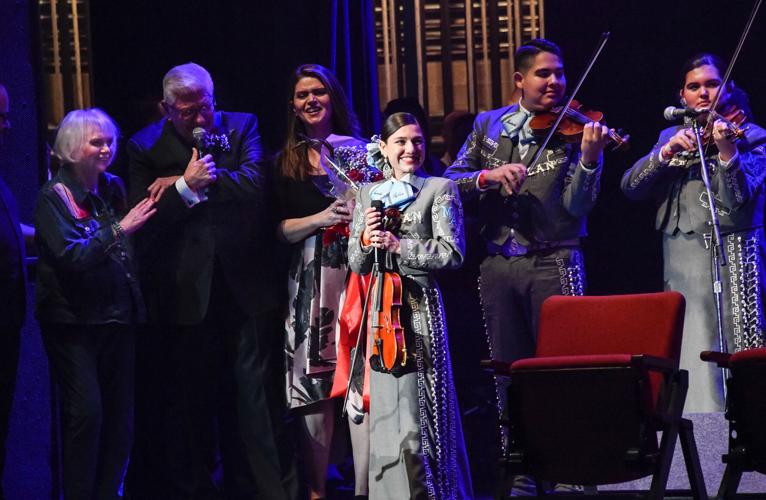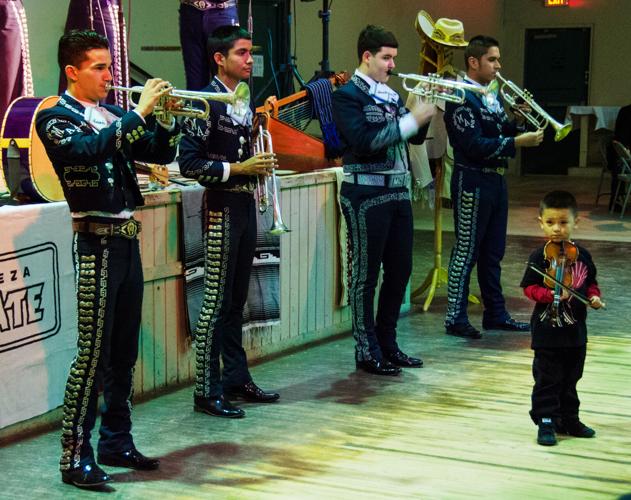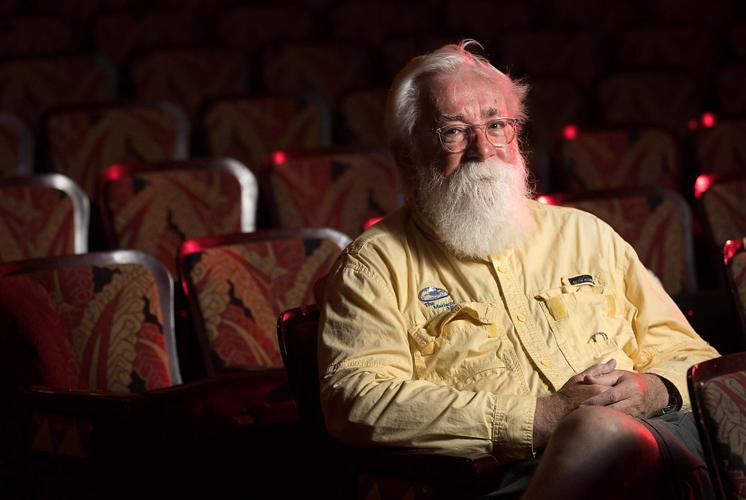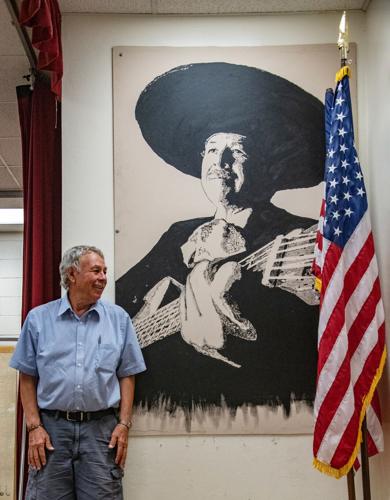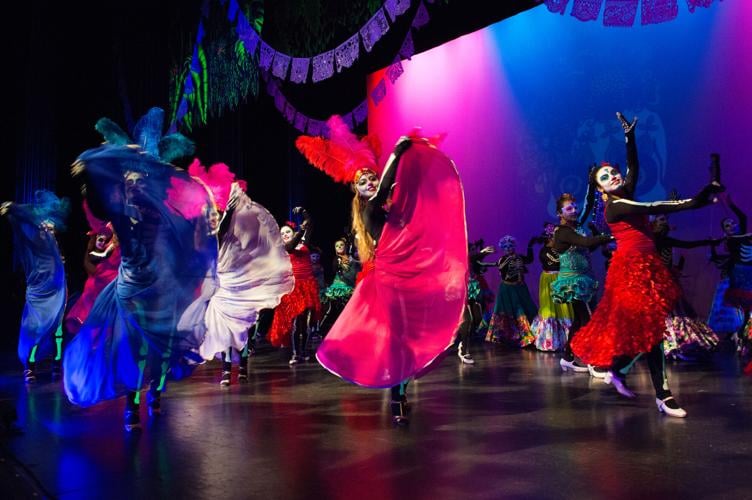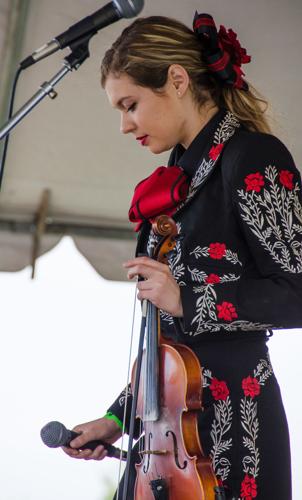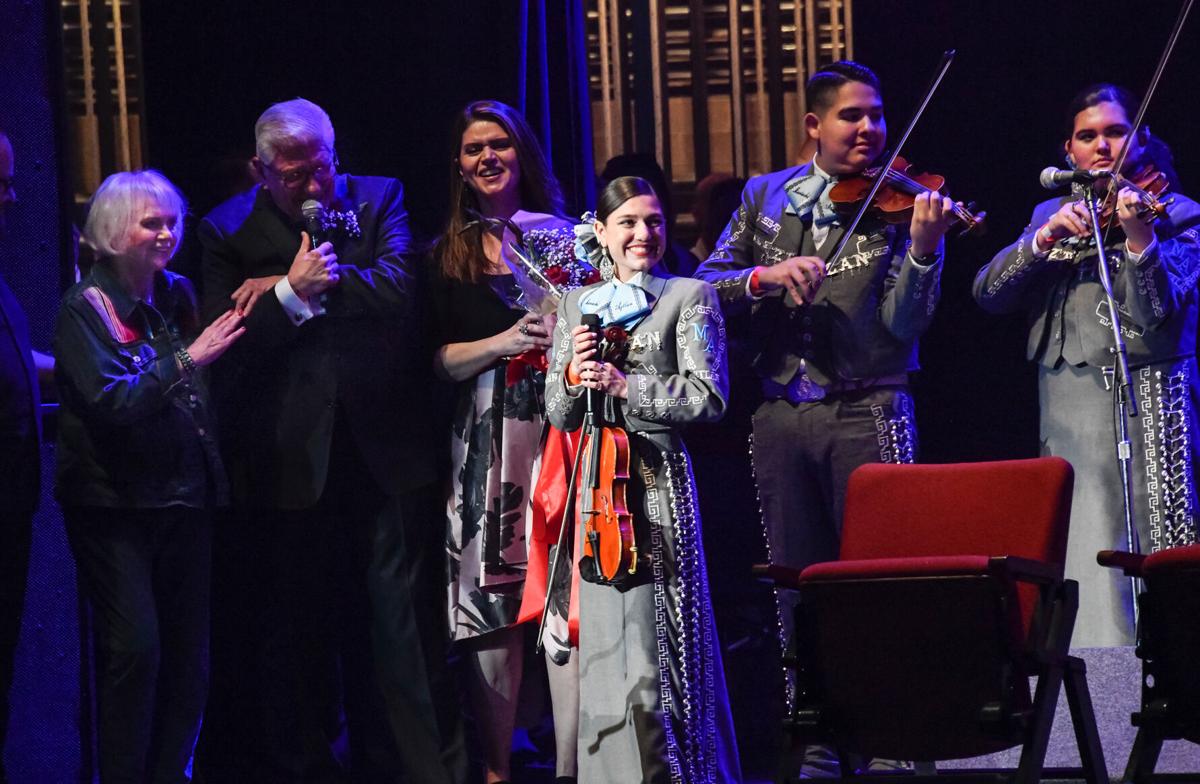Sometimes telling a good story takes time.
And patience.
But 10 years?
That’s how much time Tucson filmmaker and longtime culture critic Daniel Buckley has spent on his mariachi documentary “The Mariachi Miracle.”
He’s not finished ... yet.
“The story is very compelling. This is a chapter of American history that has never been told,” the 69-year-old former Tucson Citizen music critic said last week as he tied up loose ends on a version of the film that he will screen at Fox Tucson Theatre on Sunday, Aug. 14.
That version is a rough draft, a work in progress. Buckley said he hopes to have the final version completed in the next few months after he considers input from Sunday’s audience.
“The Mariachi Miracle” has been a Herculean task that included conducting some 350 interviews with mariachi players, educators and supporters, and piecing together a narrative that tells the story of Tucson’s lead role in mariachi’s rise from obscurity to national prominence.

Daniel Buckley, director of “The Mariachi Miracle” has worked on the documentary film for 10 years, which chronicles the history and significance of Tucson’s role in the rise of mariachi music.
About a half dozen of the people he interviewed early on have since died; one interview subject died two weeks before Buckley was set to speak with them.
“I had no idea it was going to take this long,” he said. “It took 10 years to do this, and I’m still learning stuff every day.”
Buckley’s research has made him arguably the authority on mariachi in Tucson, a genre of music that piqued his interest when he first started covering Tucson’s classical music scene for the Citizen in 1987.
“To me, (mariachi) was as high an art form as those others that I was covering,” said Buckley, who moved to Tucson from his native New York in 1971 to attend the University of Arizona.
In his junior year of college, he took a part-time job at a record store in El Con Mall, where he was exposed to the city’s diverse music scene and the Hispanic community.
When he landed a job as the Citizen’s music critic, the Tucson International Mariachi Conference was in its fourth year, and Tucson native Linda Ronstadt had just released her seminal Spanish-language mariachi album “Canciones de Mi Padre.”
The album, which went on to sell more than 2½ million copies in the U.S. and ranks as the biggest selling non-English-language album of all time, was a game-changer for mariachi in Tucson and the country.
“The impact here in Tucson was that young men and women who were mariachi suddenly saw themselves as being from the same hometown as this woman, who was astronomically impacting the global mariachi world,” Buckley said.
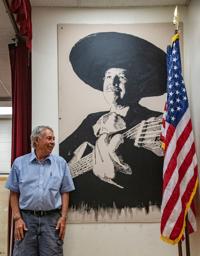
Alfredo Valenzuela, aka Dr. V, founded Davis Bilingual Elementary School’s Mariachi Las Aguilitas.
In the late 1970s, Tucson High School Spanish teacher Mack Ruiz, cofounder of Mariachi Cobre, started the first mariachi school program with Tucson High’s Mariachi Ariztlan. Around the same time, Dr. V — Alfredo Valenzuela — launched his pre-mariachi guitar group at Davis Bilingual Elementary School. Within a decade or so, Tucson Unified School District was starting mariachi programs and classes at several schools, including Pueblo High School’s Mariachi Aztlán de Pueblo High School, which has gained prominence locally and beyond Tucson’s borders. In 2016, the group opened a show in California for the pop jazz and Latin lounge orchestra Pink Martini.
The emphasis on mariachi education inspired schools around the country including in San Francisco, Los Angeles, Houston, Chicago, Las Vegas and New York City to launch their own programs.

Mariachi Aztlán de Pueblo High School has gained prominence locally and beyond Tucson’s borders. In 2016, the group opened a show in California for the pop jazz and Latin lounge orchestra Pink Martini.
Buckley’s documentary goes back to the beginning of mariachi in Tucson, Los Changuitos Feos (The Ugly Little Monkeys), a youth mariachi comprised of barrio kids brought together in 1964 by Father Charles Rourke, an Irish Catholic priest who served several Tucson parishes from 1961 through 1969. The group rose to national prominence and most of the members, many of whom Buckley interviewed, went on to prestigious careers in law, business, science and education. Mariachi Cobre, whose members came from Los Changuitos Feos, went on to become the house band in the Mexico Pavilion at Disney’s Epcot Center in Orlando, Florida.
(Tucson filmmaker David Valdez’s documentary “Ugly Little Monkeys” delves into allegations of the boys being sexually abused by Rourke. The priest left Tucson in 1969 and committed suicide in 1993 while he was under investigation for child molestation involving incidents that occurred in New Mexico.)
Buckley covered the rise of mariachi throughout his 22-year Citizen tenure, which included directing the paper’s multimedia production for eight years before the newspaper closed in 2009. That’s when Buckley turned to his Plan B and started working in documentary filmmaking.
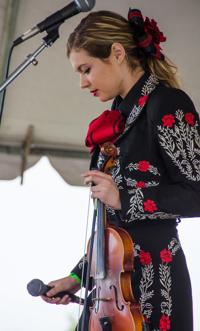
Tucson High School student Maya Arce performs at the Tucson International Mariachi Conference. In the late 1970s, Tucson High School Spanish teacher Mack Ruiz, cofounder of Mariachi Cobre, started the first mariachi school program with Tucson High’s Mariachi Ariztlan.
“When the Citizen closed, I needed to learn how to make that transition,” he said. “There’s a big difference between making a three-minute clip and a film.”
His first film project in 2009 was a collaboration with Fox Tucson Theatre that explored the history of Cine Plaza culture in Tucson in the early part of the 20th century. The downtown Cine Plaza Theater, a gathering spot for Hispanics from downtown barrios to see Spanish-language films and live Mexican entertainment, was torn down in the mid-1960s to make way for downtown urban development.
The Cine Plaza at the Fox series spun off three additional short documentaries: One on Barrio Anita followed by one on urban renewal and attempts to stop the destruction of downtown landmarks, and the third in 2011 on Barrio Hollywood on the west side.
In 2012, Buckley focused his lens on the historic El Casino Ballroom. “Tucson’s Heart and Soul: El Casino Ballroom” was his first full-length feature documentary.

After 10 years, filmmaker Daniel Buckley is ready to share his progress on “The Mariachi Miracle” on the big screen.
But “The Mariachi Miracle” is his most ambitious project. Except for some small funding boosts from supporters and a pair of local foundation grants, Buckley has financed the project on his own.
“It’s always been tremendously underfunded. And frankly, for 10 years I’ve lived on the brink of bankruptcy,” Buckley said with nary a hint of regret.
“It’s a gigantic task, and there are a lot of questions, but on the other hand, I have a community that has stepped up time after time to help me and to share those most intimate stories,” he said. “It’s a great moment and a precarious moment, but it’s really exciting as hell at the same time to finally come to a point where an audience is going to sit down and see what we are working on. I have great faith that somehow or other it will all come together.”
If you go
What: Sneak peek screening of Daniel Buckley's documentary "The Mariachi Miracle."
When: 1 p.m. Sunday, Aug. 14; doors open at 11:30 a.m. and live entertainment from mariachi and folklorico dancers will begin at noon.
Where: Fox Tucson Theatre, 17 W. Congress St.
Tickets: $15, $5 for those 6 to 12 years old, free for children 5 and younger.
Info: Click here for details or call 520-547-3040.


